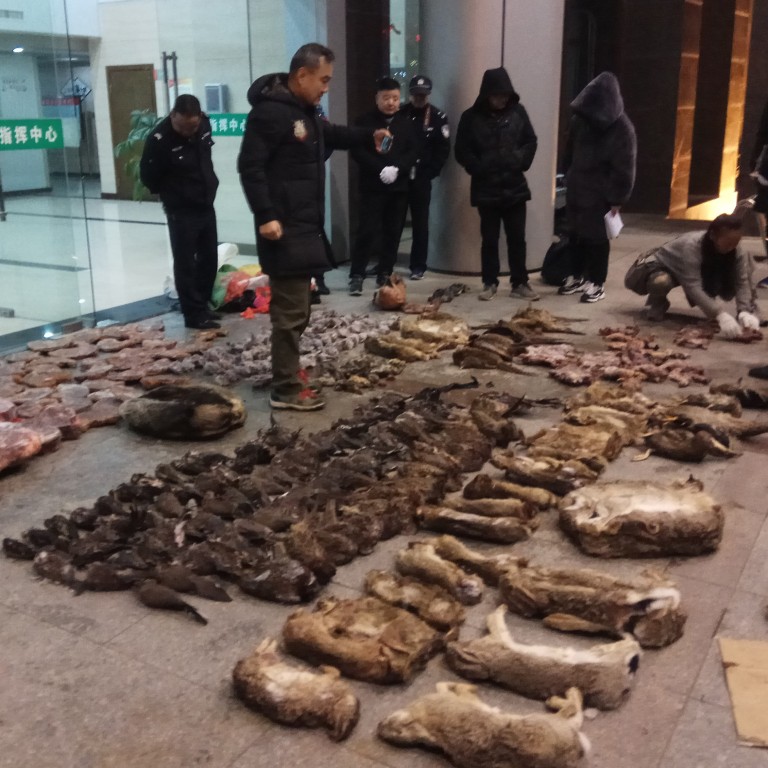
The key is to enforce the law against wildlife trade
- The trading and consumption of exotic animals in China is a multibillion-dollar industry; simply introducing legislation to ban it will not work
The health risks of eating exotic animals were summed up in a photo showing crocodiles being slaughtered in an unhygienic Guangzhou wet market published on the Post’s website this week.
The disturbing scene, hopefully, should become a thing of the past following a sweeping ban on eating wildlife triggered by the coronavirus epidemic, which experts believe is linked to China’s appetite for exotic animals.
With the eating habit culturally embedded and the industry chain so lucrative, resistance is to be expected. Strict enforcement is therefore essential lest new diseases emerge.
Long overdue as it is, the law, swiftly passed by the National People’s Congress Standing Committee against the trading and eating of wild animals, is an important overhaul to help stamp out the spread of infections.
To what extent the consumption of wild bats is related to the transmission of the deadly coronavirus that originated in Wuhan will be a matter for further examination by medical experts. But the connection with a wet market notorious for exotic animal trading has given China a bad name.
According to the World Health Organisation, 70 per cent of global disease-causing pathogens discovered in the past 50 years came from animals.
The spread of severe acute respiratory syndrome (Sars) in 2003 was traced to civet cats, a delicacy among some mainlanders. Sadly, 17 years have passed but the lesson has not been learned.
Despite rules against the trading of endangered species, China is still one of the biggest consumers of wildlife. But as with some policies and laws, enforcement and compliance are not as forceful as they should be.
A government-sponsored report three years said the industry in wildlife trade and consumption in China was valued at 520 billion yuan (US$74 billion), with a work force of 14 million people.
Even if the new law can instil a genuine awakening to shun exotic animal dishes, targeted measures are needed to break up the lucrative business chain.
A law that exists only in letter is no different from having no law. The most recent ban is just the first step to help save the country and the world from more food-induced epidemics. Vigorous enforcement is the key.

